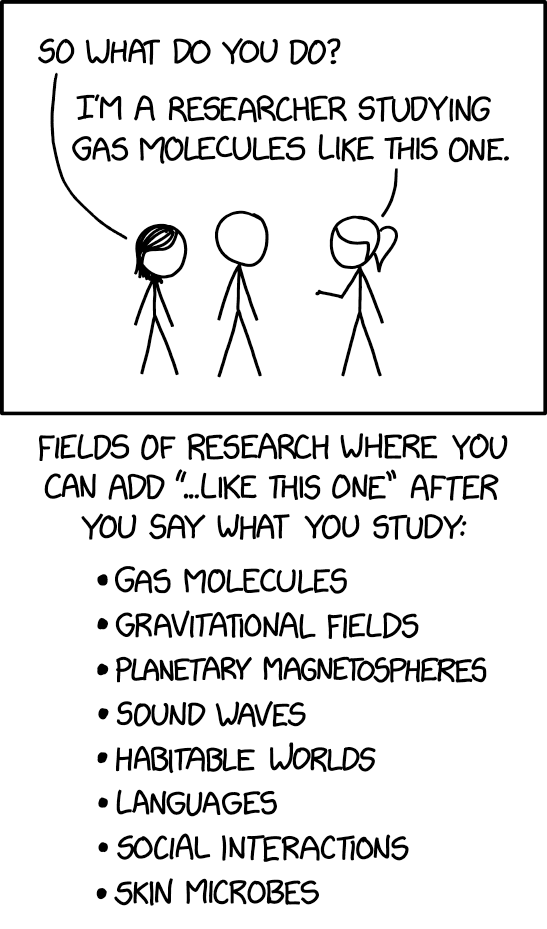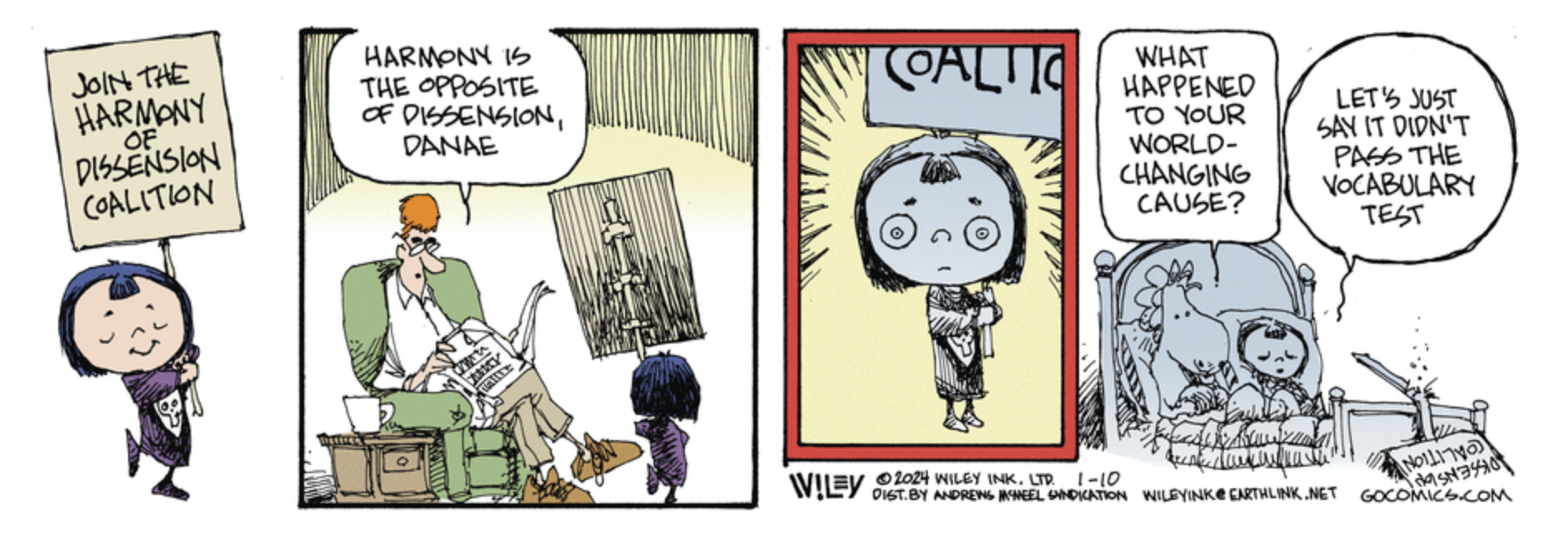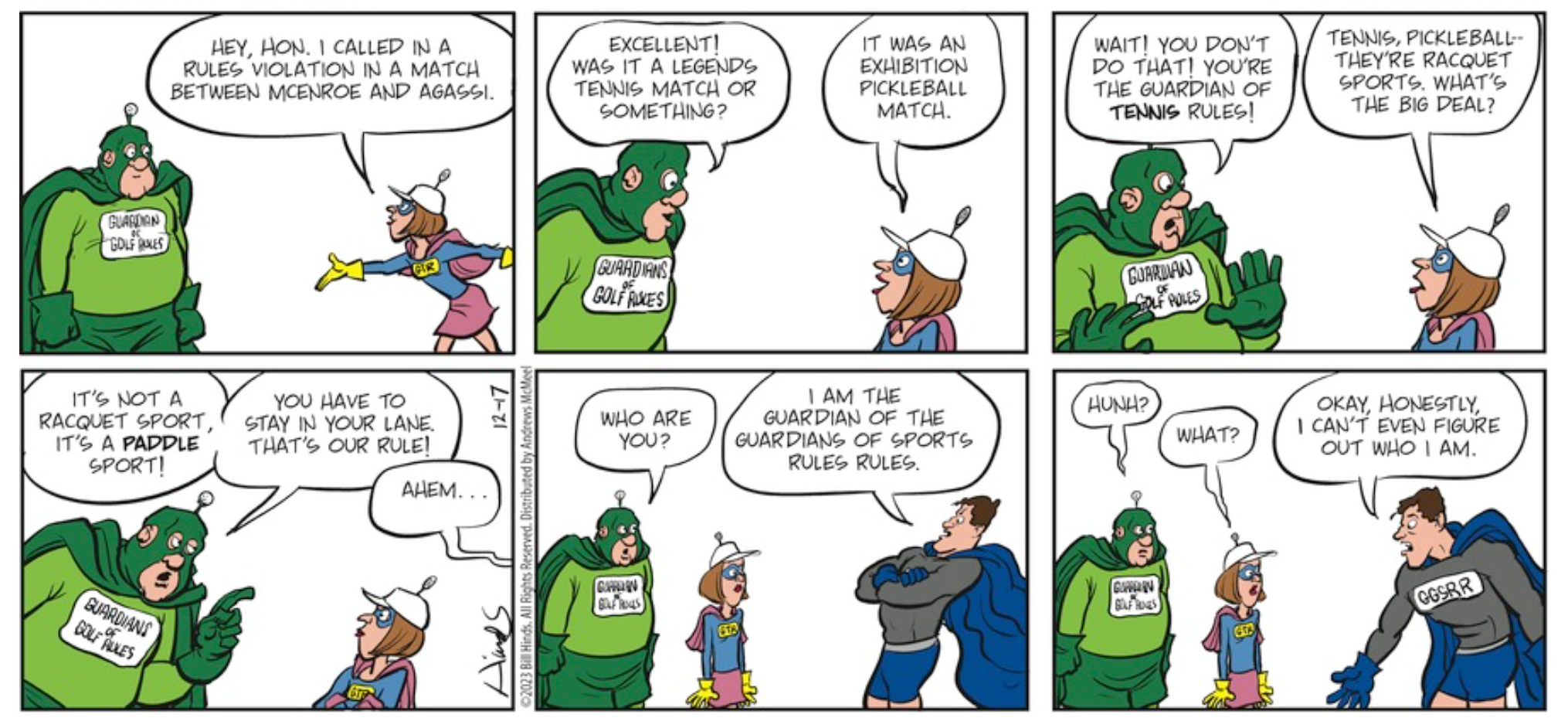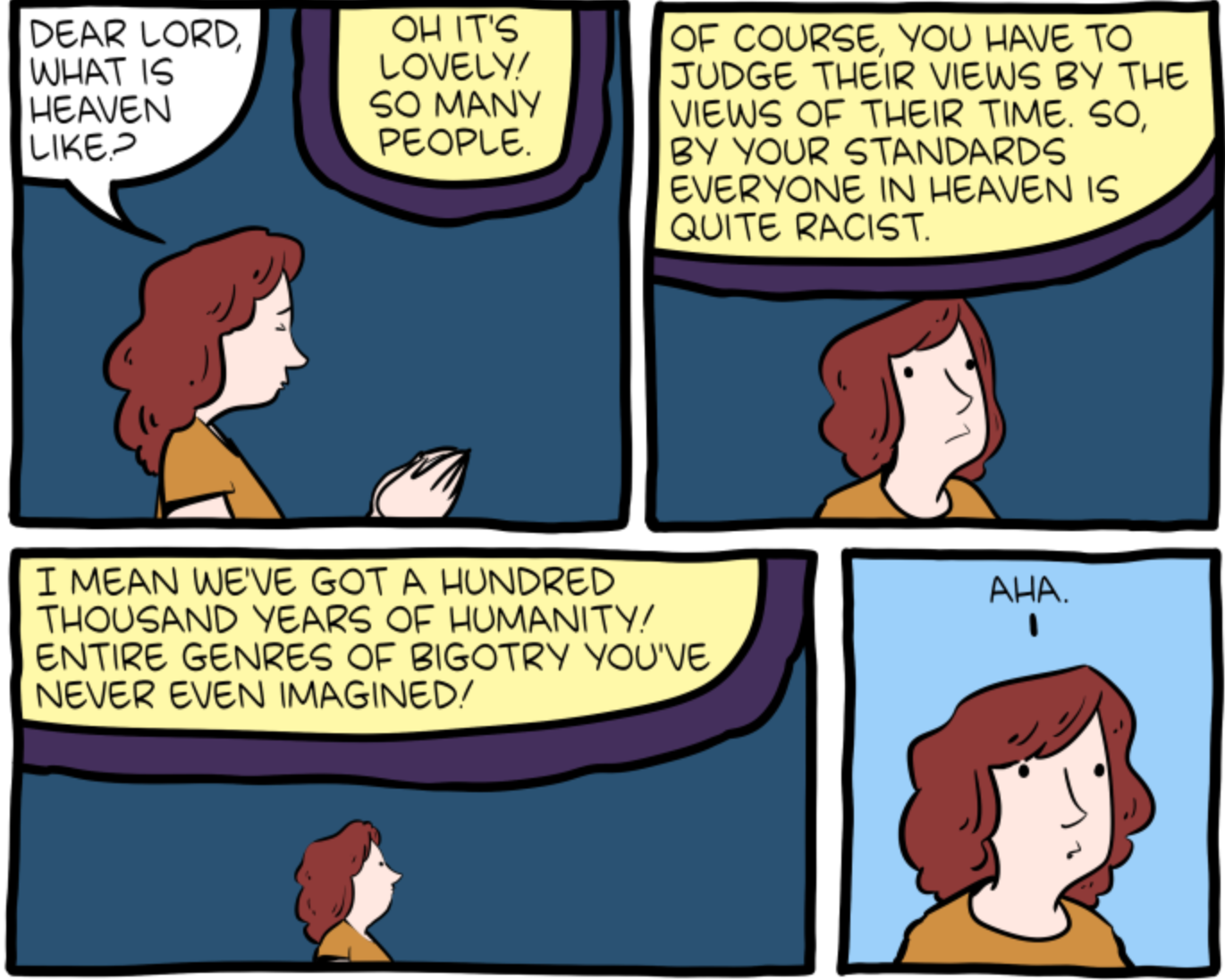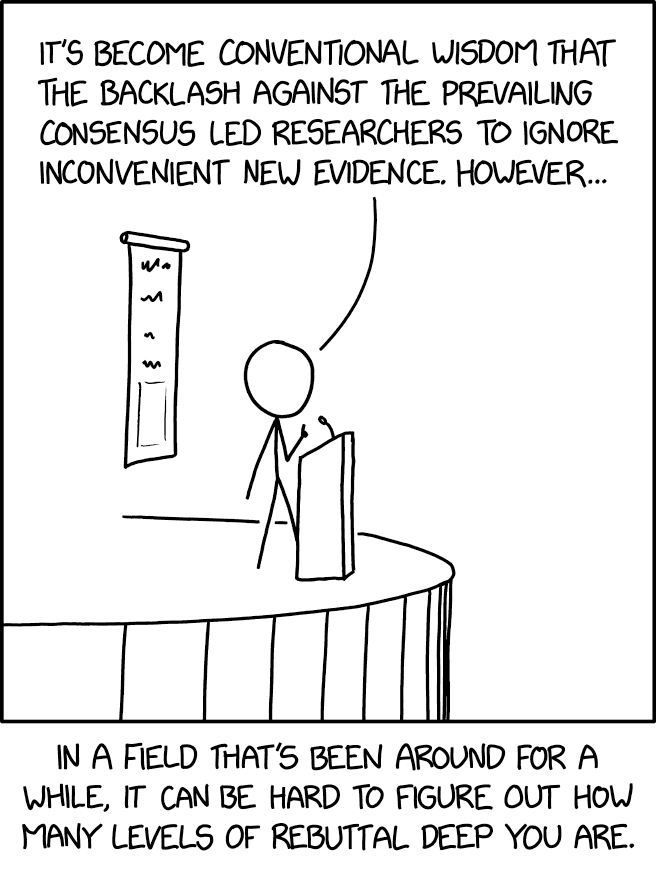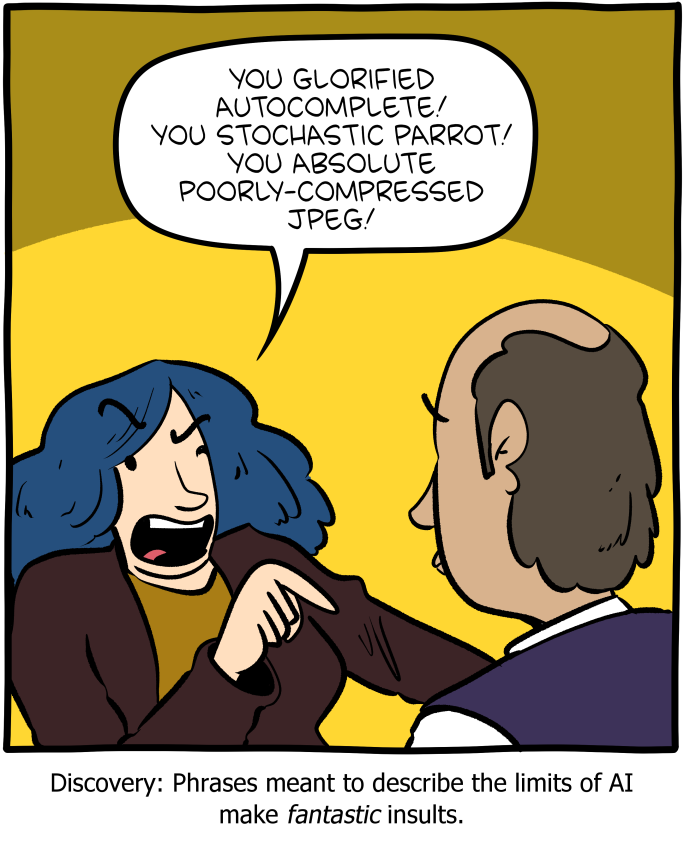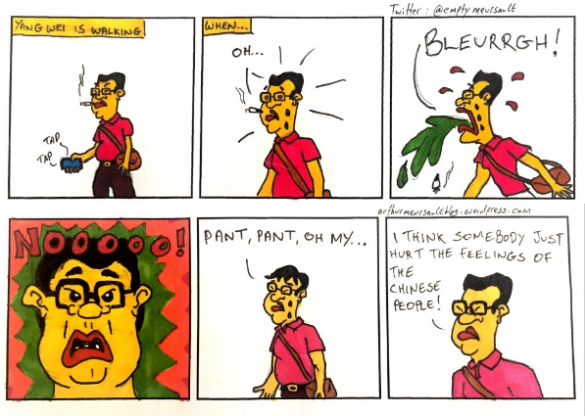Archive for Linguistics in the comics
Charlie Chaplin in French class
In addition to a proto-regular-expression for English monosyllables, Benjamin Lee Whorf's 12/1940 Technology Review article has a weird diagram showing how a linguist (?) would organize French language instruction along the lines of mid-20th-century factory work:
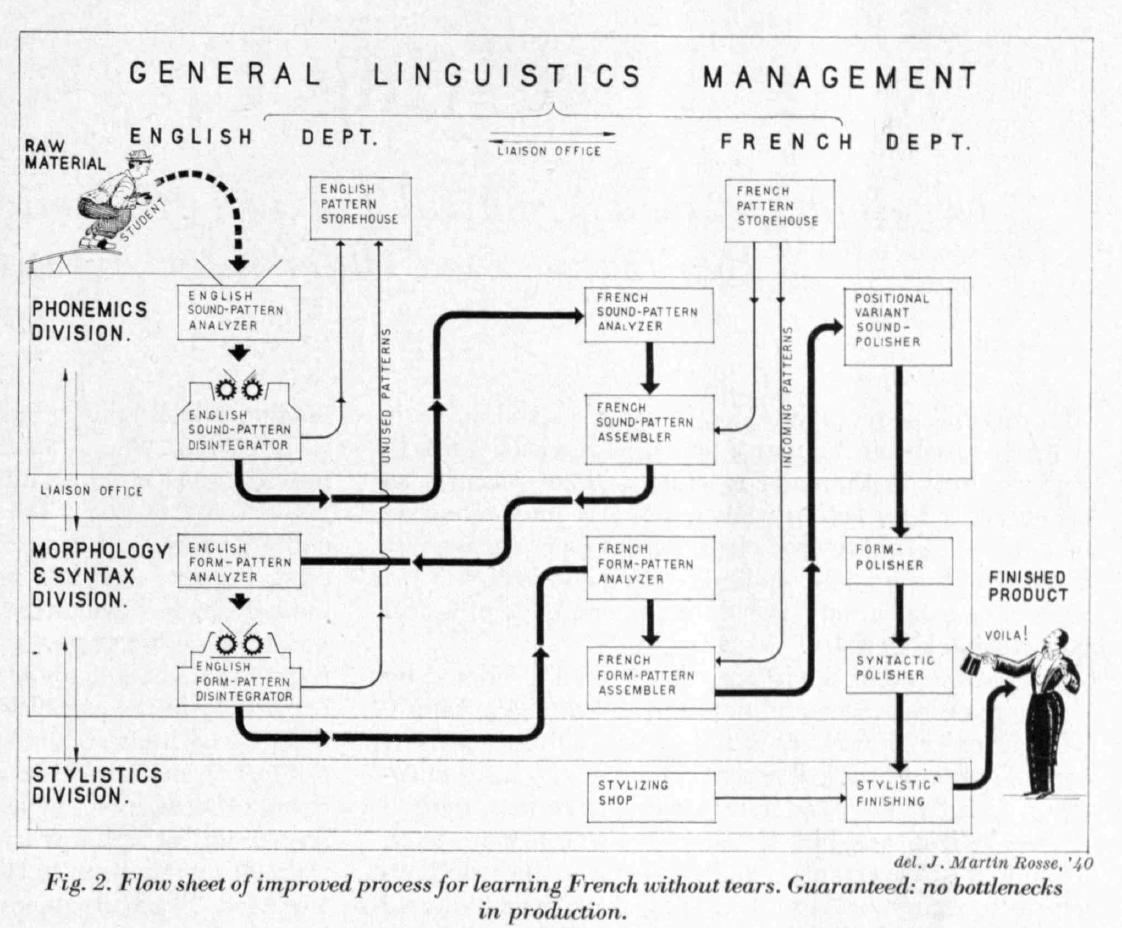
Read the rest of this entry »
Theosophical racism
Those first four panels resonated with my recent experience skimming Helena Blavatsky's The Secret Doctrine: The Synthesis of Science, Religion, and Philosophy. Vol II — Anthropogensis (1888). I learned of Blavatsky's existence due to the restaurant located in her former residence, and my sense of her influence in Philadelphia was reinforced by years of walking past the United Lodge of Theosophists.
I expected The Secret Doctrine to be nuttier than squirrel poop, as indeed it is. But I wasn't prepared for its extreme mythic racism, endorsement of (fantastical versions of) eugenics, and so on. In retrospect, I should have realized that late 19th-century fantasy would be like that. I'll spare you the details of Blavatsky's theories of lost continents and their associated "root races" — you can read Wikipedia's summary, or dive into the 1888 tome yourself if care. But I'll reproduce a few illustrative quotes from the book.
Read the rest of this entry »
Rebuttal depth and the mainvisionist dogstream
As is so often true, xkcd points to an important topic so far ignored by linguists:
Read the rest of this entry »
Sam Altman and King Blozo
We're all waiting to learn the story behind Sam Altman's firing as CEO of OpenAI. Or at least, many of us are.
Meanwhile, there's possible resonance with an on-going drama in the daily Popeye comic strip, concerning the fate of (former) King Blozo of Spinachovia, now the Superintendent of Royal Foot Surfaces:
Read the rest of this entry »
Empiricism as a New Year's resolution
Today's xkcd:
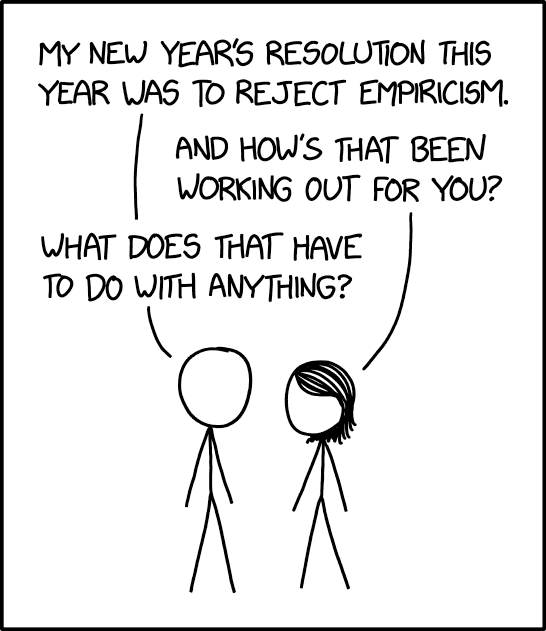
Mouseover title: "The problems started with my resolution next year to reject temporal causality."
Read the rest of this entry »
The necessary levels of narcissism
A recent SMBC strip:
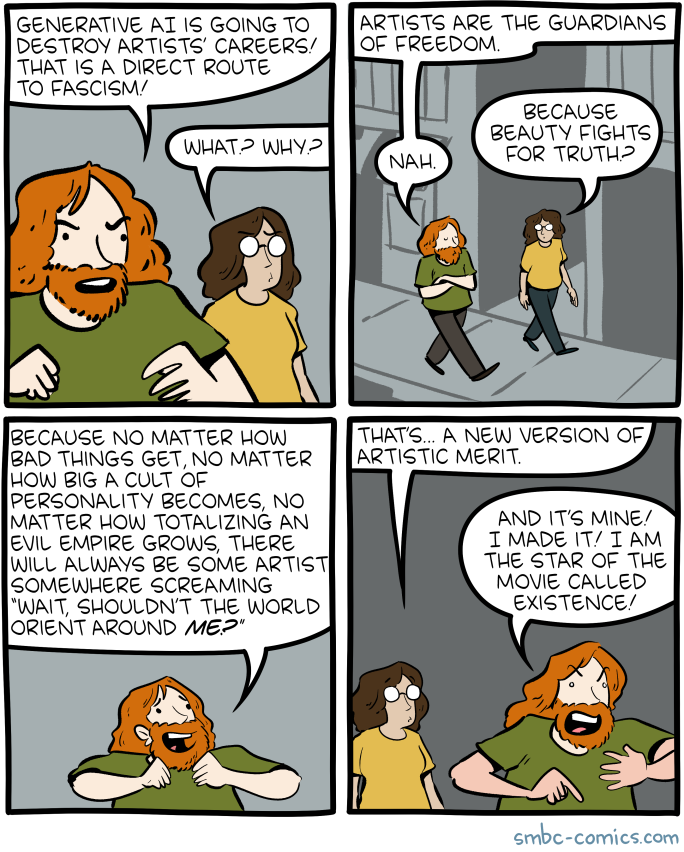
Read the rest of this entry »
AI insults
No, not what you get by asking GPT-4 for insults — for that, see below…
This is the SMBC comic from a few days ago:
Read the rest of this entry »
"Hurting the feelings of the Chinese people", part 3
Shared by John Rohsenow and David Cahill / Isham Cook:
From Arthur Meursault (@emptymeursault)
Read the rest of this entry »
